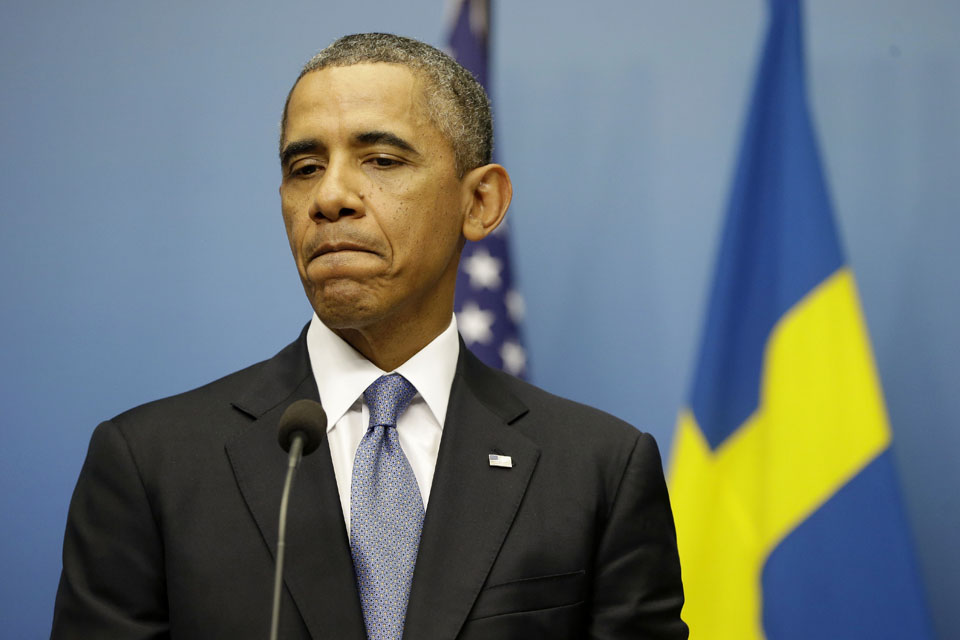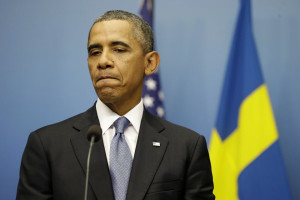

By Aaron Warnick | Photo Editor
After accusations that the Bashar al-Assad regime has been using chemical weapons against rebel forces in Syria, the United States may intervene and take military action. With an estimated 100,000 Syrians already dead, a wave of controversy has surrounded the idea of intervening.
Senior political science and history major Gannam Rifkah was born in Baltimore after his parents left Syria in the 1990s.
While his family in Syria is not in immediate danger from the violence of the civil war, involvement by the United States could push the localized violence to a successful revolution that sees the creation of a new Islamist state.
“The revolution has been co-opted by radicals,” Rifkah said. “It’s hard to see American interests with the sides built up like this… and American involvement can only escalate violence.”
Obama is still trying to gather international support for intervention. Currently, Russia and China stand opposed to any United Nations sanctioned imposition against Syria. Russian president Vladimir Putin announced Wednesday that Russia would “act decisively” if more conclusive evidence of the usage of chemical weaponry is presented.
The United States’ closest ally, the United Kingdom, withdrew support last week after Parliament rejected Prime Minister David Cameron’s call to side with the U.S. in a strike against Assad.
However, with Republican Speaker of the House John Boehner and House Majority Leader Eric Canter publicly coming out in favor of the President’s proposal, domestic support may be growing.
“After we’ve gone through all of this, are we going to try and find a reason not to act?” Obama asked at a press conference in Stockholm on Wednesday. “We can send a very strong send message… in favor of the prohibition of use of chemical weapons… we want to deter [Assad’s] ability to use [chemical weapons] again.”
The Senate Foreign Relations committee, comprising of both Republicans and Democrats, voted 10-7 to give the President authority to order a military strike in Syria. The President will not have the green-light to launch until Congress votes and this decision serves as an indicator that congressional approval, even with support from top House Republicans, may not come easy for the President.
A decision from Congress is expected as early as next week. The President’s statements indicate that the United States is motivated to join the conflict for humanitarian purposes, citing the ban on chemical weapons by the countries in the United Nations as the deciding factor.
“The world set a red-line when governments representing 98% of the world’s population said that the use of chemical weapons is abhorrent and passed a treaty forbidding their use,” Obama said.
With the staggering death-toll continuing to climb in Syria, Rifkah said he sympathizes with the President’s decision to decide to intervene on humanitarian grounds, but with the lack of a desirable alternative to Assad, stands opposed to intervention.
“I feel bad for [Obama]. He doesn’t have a good option… it would really just make a messy situation messier,” Rifkah said. “This is like the [current-day] Rwanda…100,000 people have already died from non-chemical weapons and this is the red-line?”
Political science professor Mark Haas, who specializes in American relations to the Middle East, said it is “unclear as to what President Obama’s motives are.”
“It seems that the political purpose of the force is to hurt Assad,” Haas said. “We have really bad guys who hate America on one side and on the other side, we have really bad guys who hate America.”
Rifkah’s family is Christian. Non-Muslims only make up a small minority of Syria. While they are safely living in small rural towns away from the fighting now, Rifkah said he fears that if Islamic influence expands or has the opportunity to fill the power vacuum left by Assad, that Syria may become volatile ground for minority groups.
While Rifkah’s family does not endorse the Assad regime, for fear for future persecution, they have more reason to stand against the rebels.
“It’s like a lesser of two evils,” Rifkah said. “Historically, Christians and Jews normally side with the Shiites because it’s a coalition of minorities versus a majority Sunni population.”
U.S. intervention could lead to the confined engagement escalating The fighting, which is confined to the Eastern and Northern regions of the country, leaves portions of the country undisturbed by violence.
Haas said. “A lot of innocent people who just want to live their lives and just want to be left alone are caught in the middle.”




